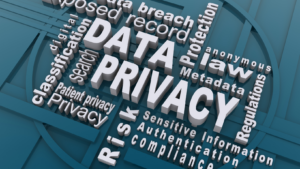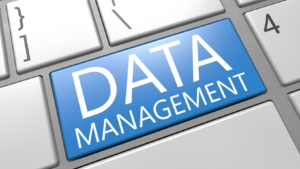In an age where data is the new currency, understanding data ownership policy is crucial for individuals and businesses alike. As digital footprints expand, questions about who truly owns the data and how it’s used have become increasingly significant. These policies serve as a framework for managing data rights, ensuring that personal and organizational information remains secure and properly utilized.
Data ownership policy is not just about protecting information; they’re about empowering users with control over their digital assets. As technology evolves, these policies help delineate responsibilities and rights, fostering trust between data collectors and users. By establishing clear guidelines, they aim to balance innovation with privacy, ensuring that data-driven advancements do not come at the cost of individual rights.
Navigating the complexities of data ownership requires a keen understanding of legal, ethical, and practical considerations. As stakeholders seek to harness the power of data, well-defined policies become essential in safeguarding interests while promoting transparency and accountability.
Data Ownership Policy

Data ownership policy defines who controls data and how it’s managed, stored, and shared. These policies provide structure for handling various data types, including personal, sensitive, and proprietary data. Organizations implement these policies to ensure data security, compliance with regulations, and ethical data use.
Ownership determines data rights by assigning specific permissions to individuals or entities. These rights guide access, modification, and distribution of data. For instance, a company may hold ownership over its employee data, granting access only to HR personnel and relevant departments.
Key aspects include consent, access control, and data classification. Consent ensures data subjects agree to how their information is used. Access control restricts who can view or modify data, minimizing unauthorized access. Data classification identifies data based on sensitivity, guiding its protection level.
Importance of Data Ownership
Data ownership ensures data integrity and user autonomy, making it a critical component in managing and leveraging digital information assets effectively.
Security Implications

Data ownership enables enhanced security protocols by establishing clear accountability. Organizations can implement robust access controls, ensuring only authorized users manage or modify data. Ownership policies also facilitate encryption and secure storage, reducing risks of breaches and unauthorized use. According to Cybersecurity Ventures, cybercrime costs might reach $10.5 trillion annually by 2025, highlighting the necessity of stringent data security measures linked to data ownership.
Ethical Considerations
Ethical adherence hinges on transparent data ownership practices, which promote user trust and regulatory compliance. These practices ensure that individuals have control over their data, aligning with ethical standards like informed consent and privacy rights. Studies show that 84% of consumers value data privacy (Cisco, 2021), underscoring the ethical responsibility of organizations. Well-defined data ownership fosters a culture of accountability, minimizing misuse and respecting user dignity.
Legal Frameworks Governing Data Ownership
Legal frameworks around data ownership are crafted to protect individual rights and ensure organizations comply with standards. These frameworks vary by region, establishing a complex landscape for data policy.
National Policies

National policies on data ownership often reflect the country’s approach to privacy and innovation. In the United States, the Health Insurance Portability and Accountability Act (HIPAA) governs medical data, emphasizing patient control over health information. Meanwhile, Japan’s Act on the Protection of Personal Information (APPI) mandates strict data handling to preserve personal privacy. Countries like Canada operate under the Personal Information Protection and Electronic Documents Act (PIPEDA), which outlines consent and accountability measures for personal data. Each nation’s policies are tailored to its economic, cultural, and technological environments, offering diverse interpretations of data ownership rights and responsibilities.
International Regulations
International regulations address cross-border data management, setting universal standards for data protection. The General Data Protection Regulation (GDPR) in the European Union is a prominent example, providing rigorous guidelines on data processing and user rights. It requires organizations to acquire explicit consent before data collection and mandates data portability. The California Consumer Privacy Act (CCPA), although a state law, has global influence due to the size of the California market, demanding transparency and granting consumers control over their personal data. These regulations highlight the need for international cooperation to safeguard data ownership and promote consistent protection for individuals worldwide.

